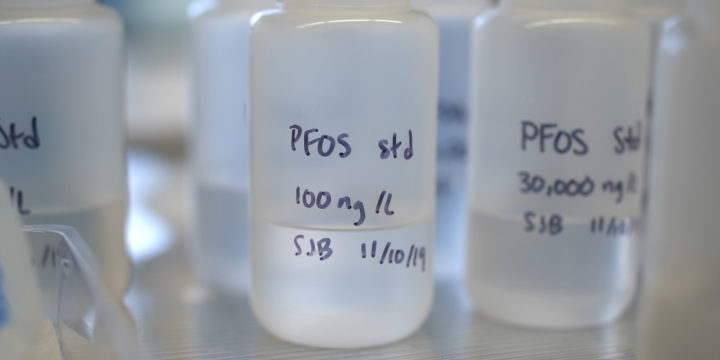There are three current funding opportunities through the University of Wisconsin Water Resources Institute (WRI), each with a deadline to apply of 5 p.m., CST, Tuesday, June 15. Any interested Wisconsin investigator is urged to contact Melissa Boyce, maboyce@aqua.wisc.edu, as soon as possible for submittal guidance through WRI’s online proposal system. Boyce is WRI’s chief financial officer.
Grant proposals in these national calls are being accepted that would address local, state and regional water challenges. Each proposal would provide funding for one to three years and up to a level of $250,000. Successful applicants must match each dollar of the federal grant with one dollar from non-federal sources. The government’s obligation under this grant program is contingent upon the availability of funds. Proposals involving substantial collaboration between the U.S. Geological Survey and university scientists are encouraged. Details on the three open calls are:
- Proposals are sought on the topics of improving and enhancing the nation’s water supply and availability, and promoting the exploration of new ideas that address or expand our understanding of water problems, including the following specific areas of inquiry (levels of priority are not assigned, and the order of listing does not indicate the level of priority):
Socioeconomics and water use – includes the development of water use models that require understanding of what drives the timing and location of water being withdrawn and used and how those relations change when climate impacts the use or conservation/management strategies (culture/societal/economics) are implemented.
Water related hazards and public health – exploration of the intersections of land/water use, disease vector mechanisms, and water hazards, climate change, and/or irrigation practices. Research may include advancing our understand of these connections as they affect the development rates of pathogens impacting public health.
Exploration and advancement of our understanding of harmful algae blooms (HABs) -Proposals are sought that focus on innovations in monitoring the occurrence of HABs and algal toxins, research on factors that result in algal toxin production, and improvements in near-real time modeling and forecasting of toxin-producing blooms.
View the PDF for this opportunity
- Proposals are sought to support research on per-and polyflouroalkyl (PFAS) substances on water resources. This national competition recognizes water quality issues of a regional or interstate nature, beyond those of concern only to a single state.
The challenges and opportunities of understanding the impact of PFAS on water resources are poorly understood, despite the real and growing impact of this group of man-made substances on water quality. Research is needed to better understand these interactions and guide management decisions that will improve water resources at the regional scale or national scale. Proposals are sought on the following specific areas of inquiry (levels of priority are not assigned, and the order of listing does not indicate the level of priority):
Research on the fate, persistence, transport, and impacts of per-and polyflouroalkyl (PFAS) substances on changes to water quality and/or ecosystem dynamics, in water resources, including surface water and groundwater.
Social and/or economic assessment of the spread, detection, impacts, solutions, and management of PFAS in surface and/or groundwater.
View the PDF for this opportunity
- Proposals are sought on the following specific areas of inquiry (levels of priority are not assigned, and the order of listing does not indicate the level of priority):
Improve our understanding of the impacts of aquatic invasive species on lakes and rivers in the Upper Mississippi River basin, including changes to water quantity, quality and ecosystem dynamics.
Identify lake and river characteristics that infer resistance and resilience to establishment and impacts of aquatic invasive species in the Upper Mississippi River basin. Research is needed to better understand these interactions and guide management decisions that will improve water resources at the regional scale.
Social and/or economic assessment of the spread, detection, impacts, solutions, and management of aquatic invasive species in the Upper Mississippi River basin.
View the PDF for this opportunity
Any investigator at an accredited institution of higher learning in Wisconsin is eligible to apply for these grants through a WRI, which was established under the provisions of the Water Resources Research Act of 1984, as amended.




